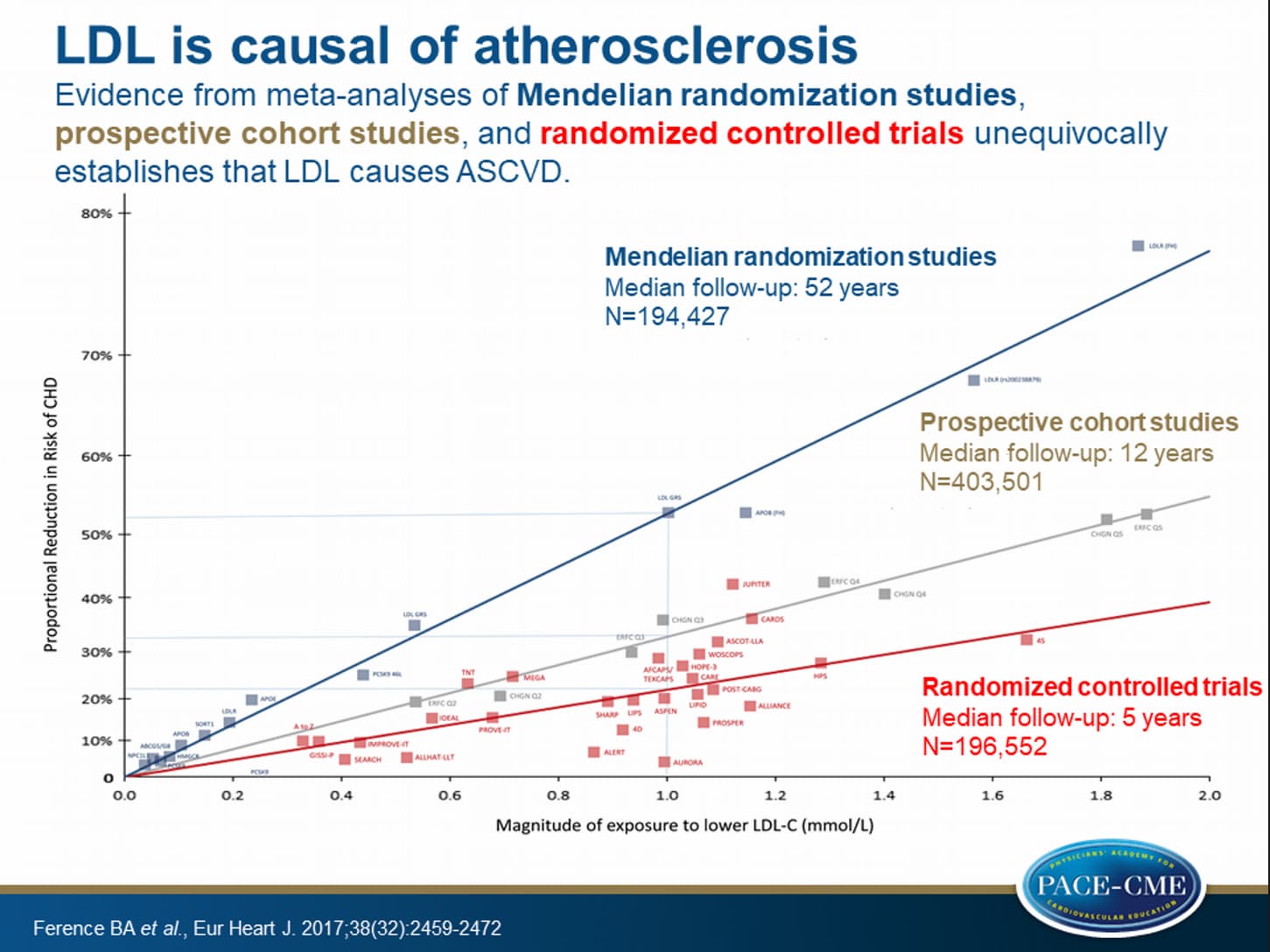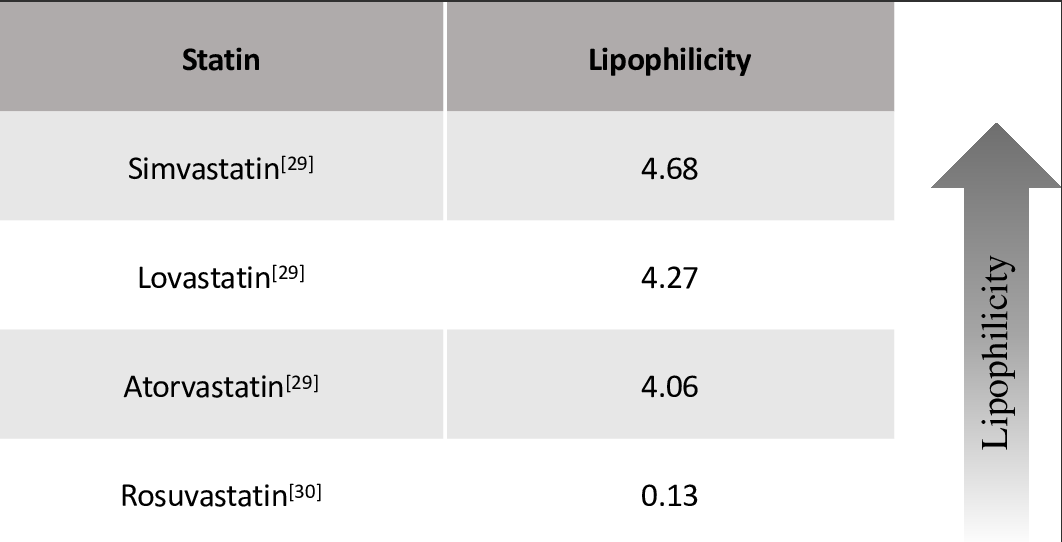It all depends on risk assessment IMO. If my metabolic health would be in check (BP, BS, insulin, weight, triglycerides…), I would not be stressed, I would exercise, my diet would be reasonably healthy, my sterile inflammation (measured via hs-CRP) would be low, I wouldn’t smoke, drink or take drugs, my calcium score would be zero, I would not have family history of ASCVD… so my risk would be low or close to zero I would not take statins from what I know now and from what I heard from different doctors. But if my risk would be higher of course I would take statins or (depending on my age, form men the worst age is from 50-65, for women is lower if I remember it correctly) but would also keep above under control. Having the above under control is in what I know is fundamental since ASCVD is inflammatory disease having inflammation processes under control seems logical to me, but since lipids cause inflammation on it’s own there is just so much you can do on that end. ASCVD is a slow progressing disease. There might be more knowledge, prevention strategies and medicines down the road. The problem with statins are some open questions as they have effect on metabolic pathways and it is a group of drugs (not every statin is the same) so some might be more beneficial than others (e.g. with some there is increased risk of dementia). But since they do influence mitochondria function I would be very wary of taking statins perpetually for primary prevention. But don’t take this as advice what you should do, just another view.
“My risk isn’t high enough”
“My inflammation is low”
“No family history”
“I am not stressed”
“I exercise”
“My BP is good”
“My weight is good”
“Insulin is good”
“I don’t drink”
“I don’t smoke”
“I don’t take drugs”
“My calcium score is zero”
“My age matters, if I was older”
“My gender”
“There is going to be more knowledge, we don’t know enough”
“Down the road there is medicines”
“Problem with statins”
“Influence mitochondria function”

Nooo! It can’t be an indepentent risk factor! It can’t be!
Not stressed btw, that’s why I make sure to do everything perfectly because it’s very bad to lower ldl… Statins, those I am scared of, not my apoB… @scta123
Also have you had any side effects from statins @LaraPo ?
According to my self assessment (using guidelines above) my risk for cvd is low. My cardiologist thinks the same. I have 3 negatives though: high lipids, 68 yo, transplanted kidney. Did not measure CAS but will soon. I’m trying to eliminate one out of 3 negatives (2 other are out of my control).
You are once again presenting a strawman argument refuting an argument that is different from the one actually under discussion.
A comic diatribe by one man to A Ted audience doesn’t mean it’s true. Plenty of quacks and cuckoos have presented before Ted. That in itself lends no credence to his flawed argument.
That graph has been used by every uneducated idiot from here to Timbuktu to denigrate Ph.D.s.
Yes, I will trust the science until proven otherwise.
MD, FACP, FNLA - Clinical Lipidologist
“A physiologic LDLc, meaning the level necessary for physiologic processes is 10-30 mg/dL. That does not mean everyone needs such a level, but rather there is zero danger from low LDLc”
A very interesting talk by a neuroscientist at Columbia University. Thanks Joseph.
I know many MD’s and PHD’s in various areas of science and we all agree that what we don’t know far exceeds what we know. The very best scientists are very humble and awed by the complexities of science and how little we truly understand.
It is difficult to discuss religion with deeply religious people.
I would never dispute smoking causes cancer as I would never dispute that LDL-C is one of the causal factors in ASCVD. Like with smoking also with high LDL-C not everyone develops the disease (for the matter of this argument I wont go into other diseases and problems smoking may cause). The main difference is, that smoking is directly causal and LDL-C is only one of the causal factors and lowering LDL-C does not correlate with lowering ASCVD risk while not smoking clearly does (I know someone could say, that even non smokers get cancer, but most of them are second hand smokers or live with other environmental causal factors). All I was saying is, that if my risk of developing ASCVD is less than 5% in next 10 years why would I take daily medicine that might lower my chance of ASCVD to less than 4%? There are so many unknown factors in ASCVD that for me personally and this is no advice to anyone is that it is not worth taking something that in best case would do very little to prevent ASCVD but in the long run might cause other metabolic problems?
I understand that there is some logic that there can be no ASCVD if there are no atherogenic particles present and we hope that physiological minimum levels are indeed low enough not to cause it. There are new medicines coming that might address LDL-C lowering strategy differently than statins and PCSK9i and might prove better at preventing ASCVD. But ATM I believe that lifestyle and taking care of metabolic health is more beneficial than taking statins (or even PCSK9i for that matter) for primary prevention in low risk individuals.
Very low LDL‐C levels <70 mg/dL was associated with increased risks of all‐cause, cardiovascular disease and stroke mortality .
https://www.ahajournals.org/doi/full/10.1161/JAHA.121.023690
Below probably is a good explanation for some aggressive behavior of Peter Attia et al. ![]()
![]()
The association among dietary cholesterol, serotonergic activity, and social behavior was consistent with data from other species and experiments and suggested that dietary lipids can influence brain neurochemistry and behavior; this phenomenon could be relevant to our understanding of the increase in suicide and violence-related death observed in cholesterol-lowering trials.
These correlation studies about statins are all nice and tidy, but i think it mostly comes down to glycation on LDL ans glycation caused inflamation of the arteries, we are flooded by sugary foods and drinks… and its well known how the sugar industri has stayed out of causation or correlation studies for decades $$ ![]()
Because you’ve maybe not heard the argument. It is compounding. It’s decreasing lifetime risk. If you invest in index funds, most of the time you don’t make a lot of money in 10 years, but in 30 years or longer, there’s a difference. If you have 1000$ and it increases by 5% every year, you will have $1600 in 10 years. But you will have $18 600 in 60 years. It is not linear. The decrease in risk from year 0-10 means the next years will have even less risk, and so on, building on itself. It is like a “healing” process.
Looking at the causal processes, triglycerides (also one part of apoB), have robust evidence for DSH/suicide and depression, LDL has weak evidence for an inverse relationship (meaning lower LDL higher risk) for the former. HDL also causally associated with depressive symptoms and MD.
So basically triglycerides and HDL-c have strong and moderate evidence respectively, while LDL for an inverse relationship has weak evidence.
There was consistent evidence that triglyceride (TG) is causally associated with DS (MR-IVW β for one-s.d. increase in TG = 0.0346, 95% CI 0.0114–0.0578), supported by MR-IVW and GSMR and multiple r2 clumping thresholds. We also observed relatively consistent associations of TG with DSH/suicide (MR-Egger OR = 2.514, CI 1.579–4.003). There was moderate evidence for positive associations of TG with MD and the number of episodes of low mood. For HDL-c, we observed moderate evidence for causal associations with DS and MD. LDL-c and TC did not show robust causal relationships with depression phenotypes, except for weak evidence that LDL-c is inversely related to DSH/suicide. We did not detect significant associations when depression phenotypes were treated as exposures.
Statins may improve depression based on their lipophilicity (able to cross the blood-brain barrier). If you search for it, studies seems to be more in favor of statins in reducing depression than the reverse.
We retrieved five randomized controlled trials meeting our inclusion criteria: four used a statin in addition to an antidepressant and compared it to placebo plus antidepressant, and one compared two statins alone. and one comparing one statin with another. Statins compared to placebo in addition to antidepressants were efficacious at 8 weeks (N = 255, SMD = -0.48, 95% CI = -0.74 to -0. 22) and 12 weeks (N = 134, SMD = -0.47, 95% CI = -0.89 to -0.05, moderate certainty) with no difference for acceptability, tolerability, and safety (low certainty). An exploratory network meta-analysis suggested that the most lipophilic statins, especially simvastatin, could be more efficacious than less lipophilic or hydrophilic molecules.
So we are back to lifestyle, food, exercise, stress, caloric surplus, lack of exercise…
I was not referring to depression directly, but mainly to aggression, which may present as hetero or auto aggressive behavior…
LDL-C also has a role in immunity, low levels may be associated with neurodegenerative diseases or even some autoimmune processes and diseases, but unfortunately as it acts as primary immunity defense activator it also has the capacity to trigger sterile inflammation that progresses/causes ASCVD.
And I am referring to all this just to open some space for discussion. Tom Dayspring, Peter Attia et al. propagate this idea, that lower the better, which IMO should be taken with a grain of salt since there is so much we don’t know about human biology…
Systemic levels don’t influence brain levels of cholesterol, so I don’t see how it would increase aggression. Brain levels of cholesterol are separate from the rest of the body, the brain synthesizes all it needs, separated with the blood-brain barrier. Hydrophilic statins have a hard time crossing the BBB also. Aggression should have been picked up in any of the trials of PCSK9i, statins, as well, or in the genetic studies. As a side effect.
Can I ask which provider you use for your weekly blood test? I have one scheduled for next week that covers 56 or so biomarkers but it is quite expensive.
I am in the UK. I have used a range of labs. Normally now it is a mixture of London Medical, Randox and Nationwide Pathology. All are in the range of GBP 150-200.
Annually, of course that is in the territory of GBP 10K note exactly Bryan Jones territory, but still not petty cash.
Incidentally I have used Medicheks, but because they are a postal service rather than a courier service there are metabolism issues.
Thanks John. Medichecks give me the option to get the blood draw done at a local pharmacy where the sample is couriered same day and I usually get my result with 48-72hrs. I’ve been on 5mg rapa for 3 months. Will be interesting to see any changes from baseline.
His book is worth reading/listing{audiobook].
“Ignorance: How It Drives Science”
https://www.amazon.com/Ignorance-Drives-Science-Stuart-Firestein/dp/0199828075
The problem is that these studies actually tell us how much there is to know. If there is a treatment that lowers risk for a disease by 96%, that means there is little room for anything else.
“I use that term [ignorance] purposely to be a little provocative. But I don’t mean stupidity. I don’t mean dumb. I don’t mean a callow indifference to facts or data or any of that” - Firestein




